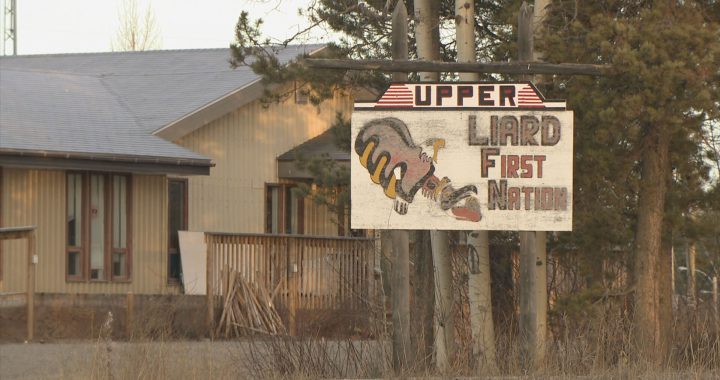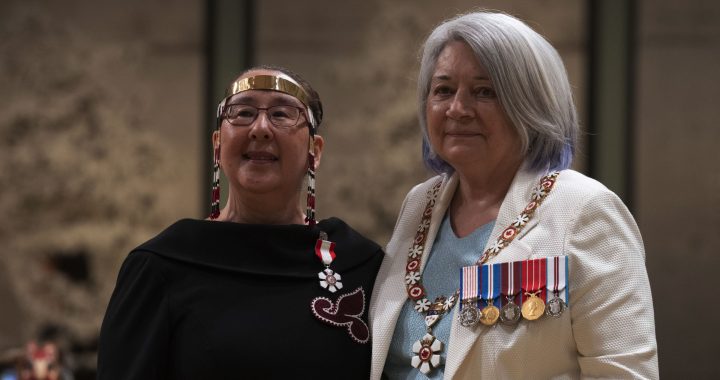Gladys Radek travelled across the country in a car she calls her “war pony,” to make it to the closing ceremonies of the National Inquiry into Missing and Murdered Indigenous Women and Girls.
When she arrived at the Canadian Museum of History in Gatineau, Que., she parked it square in the front.
She’s happy with the report.
“Yes, it was because the family’s voices were clearly heard. Canada’s dirtiest little secret is out now,” she said.
The nearly three hour ceremony had its share of colourful moment – but also ones of sombre reflection, remembering the ones who are no longer here.
Cheryl Maloney is with the Eastern Door Indigenous Women’s Association is also pleased with the day’s events.
“Letting Canadian governments know that this isn’t acceptable the way our women are being treated,” she said.
Maloney said she wasn’t bothered that Prime Minister Justin Trudeau didn’t use the word genocide in his speech.
“I’m more worried about what all the political parties say,” she said. “And what political will is going to come out of this. Whether they’re in power or opposition or a backbencher.
“I’m looking at this is a challenge for Canadians, Canadian governments and Candian representatives.”
The final report has 231 calls for justice, compared to the Truth and Reconciliation Commission’s 94 calls to action.
Senator Murray Sinclair said he’s not fazed by the number.
He sees similarities with the TRC and the Royal Commission on Aboriginal Peoples recommendations.
“So what that should tell people is that every major study that’s ever been done on the relationship between Indigenous and non-Indigenous people in this country agrees upon the direction of the solution. And so now we should just get to it.”
Gladys Radek hopes Trudeau will honour his words.
“That’s the one hope that I do have is that he honours the words. I’m looking forward to hearing about this national action plan that he claims that he’s going to work on,” she said.










